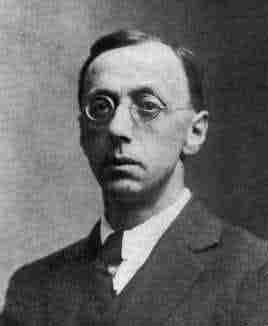


 تاريخ الرياضيات
تاريخ الرياضيات
 الرياضيات في الحضارات المختلفة
الرياضيات في الحضارات المختلفة 
 الرياضيات المتقطعة
الرياضيات المتقطعة
 الجبر
الجبر
 الهندسة
الهندسة 
 المعادلات التفاضلية و التكاملية
المعادلات التفاضلية و التكاملية 
 التحليل
التحليل
 علماء الرياضيات
علماء الرياضيات |
Read More
Date: 27-5-2017
Date: 22-5-2017
Date: 31-5-2017
|
Died: 12 February 1977

Ebenezer Cunningham's father was George Cunningham (born in Bethnal Green, London about 1846) who was a cabinet maker, and his mother was Fanny C Cunningham (born in Dalston, London about 1848). Ebenezer had an older brother George (born about 1879) and a younger brother Charles (born about 1884).
Ebenezer Cunningham was educated at Owen's School Islington and from there he won an open mathematical scholarship to St John's College, Cambridge, which he entered in 1899. His lecturers at Cambridge included Baker, Larmor, J G Leathem and R Pendlebury. Baker was his director of studies. At Cambridge his main interests outside mathematics were choral music and rowing. He became a pacifist while at Cambridge through the Boer War years 1899 to 1902 [1]:-
The Boer War, which coincided with his undergraduate days, determined once and for all his attitude towards war; he was an uncompromising pacifist and, as such, his position during the First World War made him unpopular in many quarters, but his moderating influence with like-minded but hasty young men was highly beneficial, and his friends stuck to him.
After graduating as Senior Wrangler in 1902 he worked for a Smith's prize. Results similar to those he obtained were, unfortunately, published in a French journal before he had submitted. He started work on a new topic submitting a winning entry on matrices for the Smith's prize of 1904.
In 1904 not only was he elected to a Fellowship at St John's College but he also became a lecturer at Liverpool University. While at Liverpool he collaborated with Bateman.
Until 1907 he worked both in Liverpool and in Cambridge. Then he moved to University College London where he worked under Pearson. He wrote on linear differential equations, prompted by Pearson's work and other work related to statistics.
Although Cunningham's early papers were on analysis, he was soon to change topic. While at Cambridge, he had read Larmor's famous book Aether and Matter and then, in 1905, after reading Einstein's paper on special relativity, he began to work on that topic. Cunningham published The Principle of Relativity in 1914, the first English book on the topic. Many papers on relativity followed.
In fact Cunningham had returned to St John's College Cambridge in 1911, at the invitation of Baker. His work in Cambridge was interrupted by World War I when he worked on the land rather than join the army. Of course during this period he found it hard to keep in touch with developments in relativity theory which took place in Germany. After this he never returned to major research projects and spent the rest of his career as an enthusiastic teacher of mathematics at Cambridge. Cunningham himself blamed the administrative work for his lack of research, saying that it:-
... for some years came between me and any freedom to follow up and keep abreast of the extremely rapid advance of science.
Cunningham's pacifist views were connected to his strong religious views [1]:-
A keenly religious man, Cunningham devoted a large amount of energy to affairs of Emmanuel Congregational Church, of which he was an office-bearer. He was chairman of the Congregational Union of England and Wales for 1953-54.
We have already mentioned his pacifist views during World War I but [1]:-
Later he became attracted by the Oxford Group movement, though never by its extravagances.
As to his interests outside mathematics [1]:-
Music played a great part in his life, and on at least one occasion he electrified and humanized a somewhat solemn gathering at his house by sitting down at his piano and singing a comic song.
The obituary [1] contains the following tribute:-
He was a man of patent sincerity and great kindness who served his college and university well.
Articles:



|
|
|
|
"عادة ليلية" قد تكون المفتاح للوقاية من الخرف
|
|
|
|
|
|
|
ممتص الصدمات: طريقة عمله وأهميته وأبرز علامات تلفه
|
|
|
|
|
|
|
المجمع العلمي للقرآن الكريم يقيم جلسة حوارية لطلبة جامعة الكوفة
|
|
|